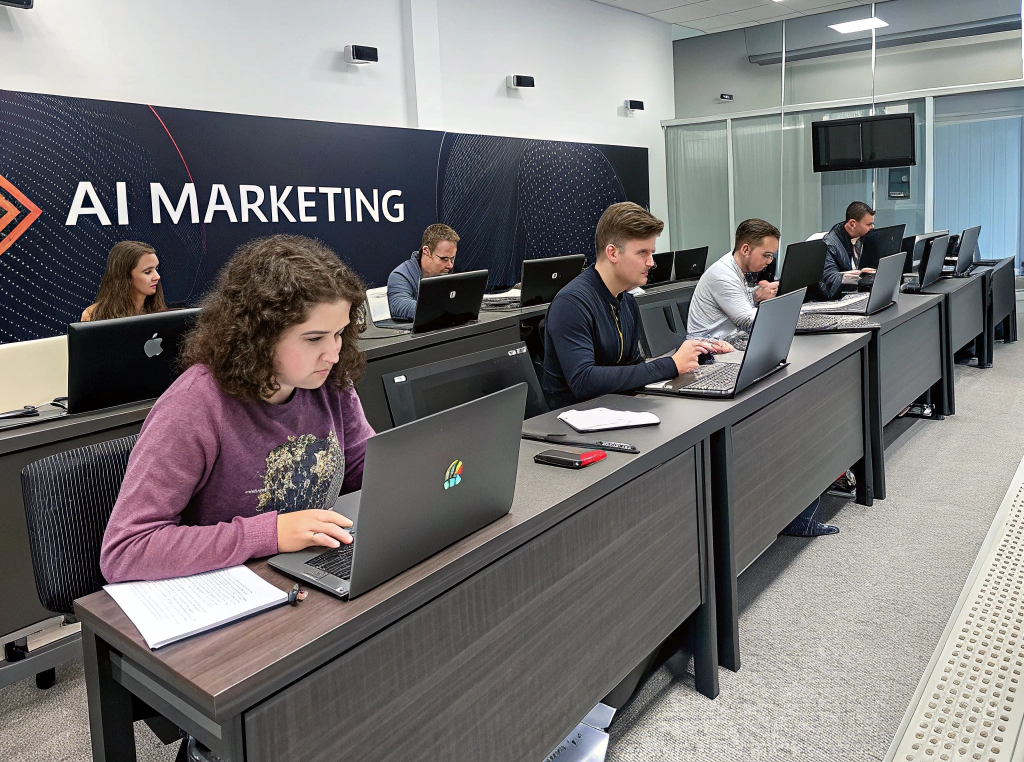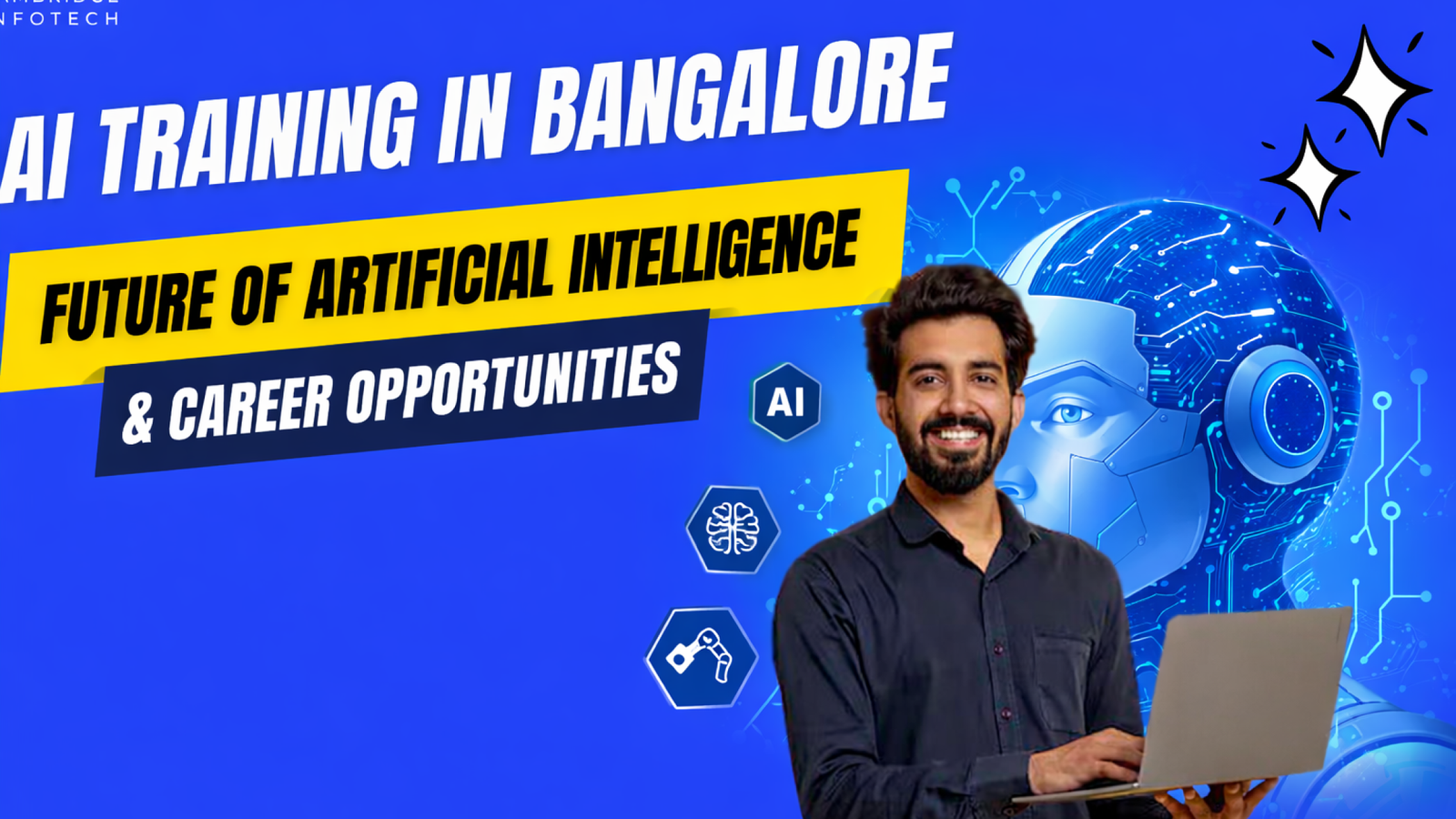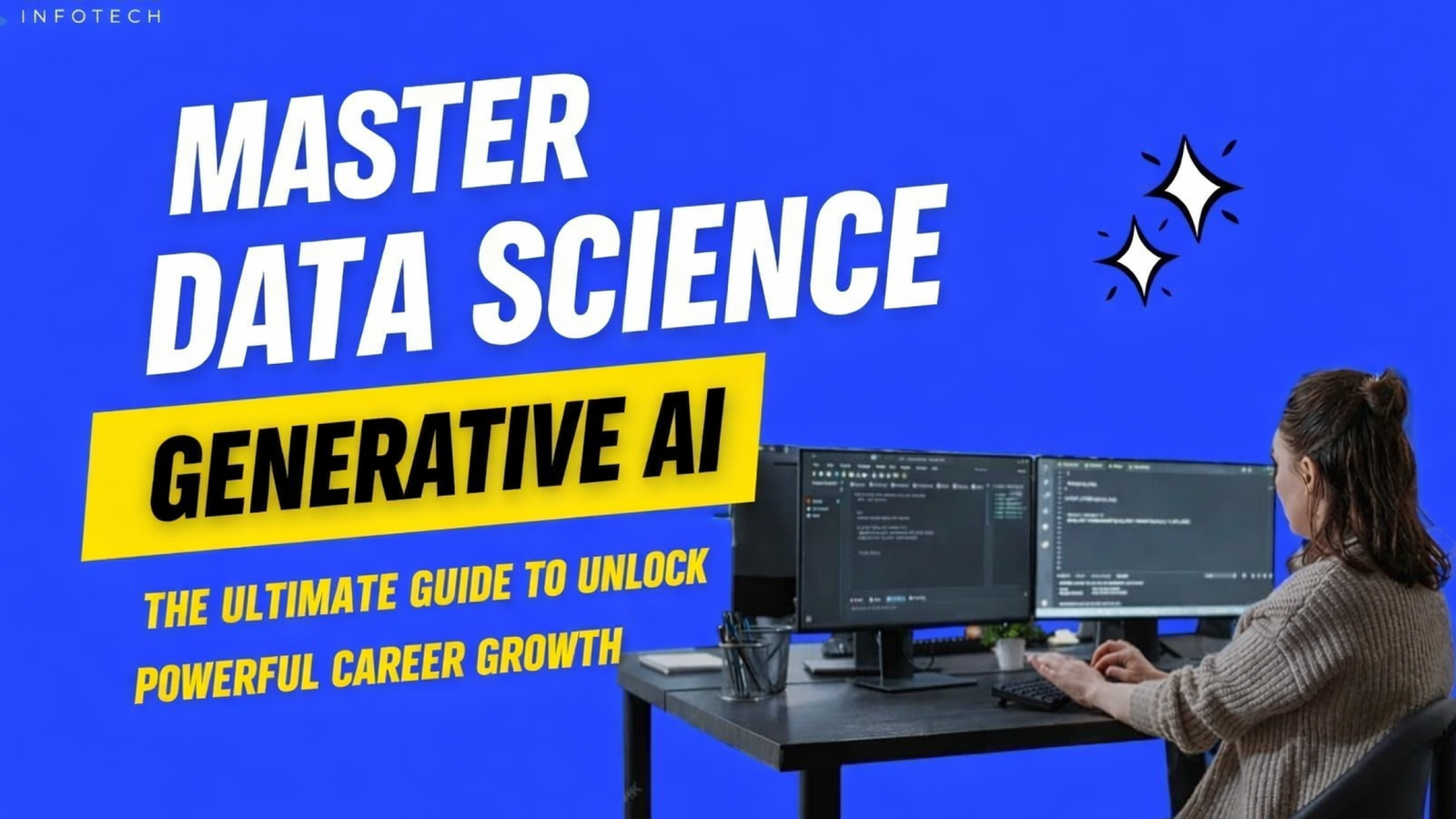Why is AI Important in Marketing Today – Transforming Customer Engagement & Business Growth(2025)

Intro
In today’s fast-paced digital era, businesses are constantly looking for smarter ways to connect with customers, improve efficiency, and drive better results. That’s where Artificial Intelligence (AI) plays a game-changing role in marketing. But why is AI important in marketing today? Because it helps companies personalize customer experiences, predict consumer behavior, automate repetitive tasks, and make data-driven decisions faster than ever before. From chatbots and recommendation engines to predictive analytics and targeted advertising, AI is transforming the way brands engage with their audience and achieve growth.
What is AI in Marketing?
Artificial Intelligence (AI) in marketing refers to the use of smart technologies, machine learning algorithms, and data-driven tools to enhance marketing strategies and decision-making. Instead of relying only on human intuition, AI helps marketers analyze massive amounts of customer data, identify patterns, and create more personalized, efficient, and impactful campaigns.
In simple terms, AI in marketing means using intelligent systems to understand customer behavior, predict future trends, and deliver the right message to the right audience at the right time. From chatbots providing instant customer support, to recommendation engines suggesting products on e-commerce platforms, AI is already shaping how businesses communicate and build relationships with their customers.
Key areas where AI is used in marketing include:
Personalization: Tailoring content, offers, and experiences to individual customers.
Predictive Analytics: Anticipating customer needs and future buying behavior.
Automation: Streamlining tasks like email marketing, social media posting, and ad optimization.
Customer Insights: Understanding customer sentiment, preferences, and engagement.
Targeted Advertising: Running ads that reach the right people with higher ROI.
By combining the power of data and AI technologies, businesses can deliver more value to customers, reduce costs, and improve marketing outcomes—making AI one of the most powerful tools for today’s marketers.
Why is AI Important in Marketing Today?
In today’s competitive business environment, customers expect personalized experiences, faster responses, and meaningful interactions from brands. Traditional marketing methods often struggle to keep up with these expectations, but AI bridges this gap by bringing intelligence, speed, and accuracy into marketing strategies.
Here are the top reasons why AI is important in marketing today:
Personalized Customer Experiences
AI analyzes customer data such as browsing history, purchase patterns, and online behavior to deliver personalized product recommendations, targeted ads, and tailored messages. This increases customer satisfaction and loyalty.Better Decision-Making with Data Insights
Businesses generate huge volumes of data every day. AI tools can process this data in real-time, helping marketers make smarter, faster, and more accurate decisions.Predicting Consumer Behavior
AI-powered predictive analytics enables marketers to anticipate what customers might want next, helping them design campaigns that resonate and improve conversion rates.Marketing Automation
From scheduling social media posts to sending email campaigns, AI automates repetitive tasks—saving time and allowing marketers to focus on strategy and creativity.Cost Efficiency & Higher ROI
By optimizing ad targeting, budget allocation, and campaign performance, AI reduces wasteful spending and ensures maximum return on investment.Real-Time Customer Engagement
Chatbots and virtual assistants powered by AI provide 24/7 support, answering queries instantly and improving overall customer satisfaction.Competitive Advantage
Companies that use AI in marketing gain a significant edge by staying ahead of trends, reaching the right audience, and adapting quickly to market changes.
In short, AI is no longer optional in marketing—it’s essential. It empowers businesses to understand customers better, engage more effectively, and achieve sustainable growth in a digital-first world.
Top Benefits of AI in Marketing
The impact of Artificial Intelligence in marketing goes far beyond automation. It enables businesses to create smarter, faster, and more meaningful customer interactions. Here are the top benefits of AI in marketing today:
1. Personalized Marketing at Scale
AI helps businesses deliver hyper-personalized experiences by analyzing customer behavior, interests, and past interactions. From product recommendations on e-commerce sites to tailored emails, AI ensures each customer feels valued, leading to higher engagement and loyalty.
2. Smarter Customer Insights
Traditional marketing data often takes time to analyze, but AI processes data in real time. This provides deep insights into customer preferences, buying patterns, and pain points, allowing marketers to craft highly targeted campaigns.
3. Predictive Analytics for Better Conversions
AI-powered predictive models can forecast customer behavior, such as the likelihood of a purchase or churn. This enables businesses to act proactively—offering discounts, personalized offers, or reminders that boost conversions.
4. Marketing Automation & Efficiency
AI automates repetitive tasks like email campaigns, social media posting, ad bidding, and lead scoring. This not only saves time but also ensures campaigns run with precision, reducing human errors and improving efficiency.
5. Enhanced Customer Engagement
AI chatbots and virtual assistants provide 24/7 customer support, answering queries instantly, guiding buyers, and improving overall customer satisfaction. This creates stronger relationships between brands and their audience.
6. Optimized Advertising & ROI
With AI-powered ad targeting, businesses can reach the right audience with the right message at the right time. This leads to higher click-through rates, reduced costs, and maximum return on investment (ROI).
7. Real-Time Decision Making
AI allows marketers to react to changing customer behavior instantly. Whether it’s adjusting ad spend, refining targeting, or personalizing offers, real-time insights make campaigns more agile and impactful.
8. Competitive Advantage
Companies that adopt AI in marketing stay ahead of competitors by predicting trends, improving campaign accuracy, and delivering customer experiences that stand out in the crowded digital marketplace.
How AI is Changing Consumer Behavior
Consumer behavior is no longer shaped only by price, quality, or brand reputation. In today’s digital-first world, AI technologies are redefining how customers discover, evaluate, and interact with businesses. From personalized shopping experiences to instant support, AI is making consumers more informed, empowered, and connected than ever before.
Here are the key ways AI is changing consumer behavior:
1. Demand for Personalization
Consumers now expect brands to understand their needs. Thanks to AI, personalized recommendations on platforms like Amazon or Netflix influence what people buy and watch. This has shifted behavior—customers are more likely to engage with brands that tailor experiences to their interests.
2. Faster Decision-Making
AI-powered tools such as chatbots, voice assistants, and recommendation engines provide instant solutions and suggestions, helping consumers make decisions quicker. The result? Shorter buying cycles and increased convenience.
3. Always-On Expectations
With AI-enabled support available 24/7, customers expect round-the-clock assistance. This has reshaped buying behavior, as people no longer wait for business hours to get answers or make purchases.
4. Influence of Predictive Suggestions
AI anticipates what customers may want next—whether it’s through Google search predictions, product recommendations, or personalized ads. This subtly guides consumer choices, shaping buying habits without them even realizing it.
5. Shift Toward Digital Trust
AI-driven fraud detection, secure payments, and identity verification are increasing consumer confidence in online shopping. Customers are more willing to make digital transactions because they trust AI-enhanced security measures.
6. Higher Expectations of Brand Interaction
Today’s customers compare their brand interactions with leading AI-powered platforms like Amazon, Spotify, or Netflix. This has raised the bar, making AI-driven personalization and convenience the new standard.
Real-World Applications of AI in Marketing
Artificial Intelligence is no longer a futuristic concept—it’s already transforming the way businesses market their products and services. From personalized recommendations to automated ad targeting, AI applications are driving measurable results across industries.
Here are the most impactful real-world applications of AI in marketing:
1. Chatbots & Virtual Assistants
AI-powered chatbots provide instant, 24/7 customer support, answering queries, assisting with purchases, and guiding users through websites. Virtual assistants like Siri, Alexa, and Google Assistant have also changed how consumers interact with brands using voice search marketing.
2. Personalized Product Recommendations
E-commerce giants like Amazon and streaming platforms like Netflix use AI to analyze user behavior and deliver tailored product or content suggestions. This boosts engagement, sales, and customer satisfaction by making every interaction feel personalized.
3. Predictive Analytics
AI helps businesses forecast trends and predict customer behavior. For example, retailers can anticipate shopping patterns during festive seasons, while financial firms can predict client churn. This enables brands to create proactive marketing campaigns.
4. Programmatic Advertising
AI automates digital ad placements by analyzing user data in real time. This ensures ads reach the right audience at the right time, reducing wasted budget and improving ROI. Google and Facebook heavily rely on this system for ad optimization.
5. Sentiment Analysis
AI tools monitor customer reviews, comments, and social media conversations to understand public sentiment about a brand. This helps marketers adjust strategies quickly, manage reputation, and engage with customers more effectively.
6. Dynamic Pricing
Companies like airlines, hotels, and e-commerce sites use AI algorithms to adjust prices dynamically based on demand, competitor pricing, and buying behavior—offering competitive yet profitable pricing strategies.
7. Email Marketing Optimization
AI-driven tools segment audiences, personalize subject lines, and send emails at the optimal time for higher open and click-through rates. This makes email campaigns more effective and conversion-friendly.
8. Content Creation & Curation
AI can generate data-driven blog posts, product descriptions, and social media content. It also curates relevant articles, videos, or recommendations for users—keeping them engaged with the brand’s ecosystem.
These applications of AI in marketing are proof that AI is not just a trend but a necessity. Brands that integrate AI into their strategies experience higher efficiency, stronger engagement, and measurable business growth.
AI in Digital Marketing vs Traditional Marketing
Marketing has evolved significantly over the years. While traditional marketing relied on broad campaigns and intuition, AI-powered digital marketing leverages data, automation, and personalization to create smarter strategies.
Here’s a breakdown of how the two differ:
| Aspect | Traditional Marketing | AI in Digital Marketing |
|---|---|---|
| Audience Targeting | Broad, mass-market campaigns (TV, radio, print) | Hyper-targeted ads based on behavior, interests, and demographics |
| Customer Experience | One-size-fits-all messaging | Personalized experiences tailored to individual users |
| Data Usage | Limited research, surveys, and historical data | Real-time analysis of large datasets for accurate insights |
| Campaign Speed | Slow execution, requires manual effort | Automated, real-time adjustments for faster campaign optimization |
| Engagement | Mostly one-way communication | Two-way interaction with chatbots, virtual assistants, and AI tools |
| Cost Efficiency | Expensive with low tracking accuracy | Cost-effective with measurable ROI |
| Decision-Making | Based on intuition and past trends | Based on predictive analytics and AI-driven insights |
Key Takeaway:
Traditional marketing focuses on reach and awareness, but it lacks personalization and data precision. AI in digital marketing allows businesses to connect with customers in real time, predict their needs, and deliver personalized content—leading to higher engagement, efficiency, and ROI.
Future of AI in Marketing
The journey of Artificial Intelligence in marketing has only just begun. As technology continues to advance, the future of AI in marketing promises even greater personalization, automation, and intelligence—helping brands stay ahead in an increasingly competitive landscape.
Here are some of the key trends shaping the future:
1. Hyper-Personalization
AI will move beyond segment-level targeting to true one-to-one personalization, where every customer interaction—from website visits to product recommendations—will be uniquely tailored in real time.
2. Voice & Visual Search Marketing
With the rise of smart speakers and AI-powered image recognition, voice search and visual search will become major channels for customer engagement. Brands that adapt to these trends will capture new audiences.
3. AI-Generated Content
AI tools are already creating product descriptions, ad copies, and blog posts. In the future, we’ll see AI producing creative video ads, social media campaigns, and even storytelling that feels human-like but is data-driven.
4. Predictive & Prescriptive Marketing
Instead of just analyzing data, AI will increasingly predict future trends and even suggest the best course of action for marketers. This means businesses can stay ahead of customer needs before they even arise.
5. Smarter Chatbots & Virtual Assistants
Next-gen chatbots will be emotionally intelligent, able to understand customer tone and sentiment, and respond more naturally—creating human-like conversations that improve customer relationships.
6. Ethical & Responsible AI Marketing
As AI grows, issues around data privacy, transparency, and bias will become central. Brands that adopt ethical AI practices will build trust and long-term customer loyalty.
7. Integration with Emerging Tech
AI will merge with AR (Augmented Reality), VR (Virtual Reality), and IoT (Internet of Things) to create immersive experiences like virtual shopping, smart recommendations, and interactive ads.
Who Should Learn AI in Marketing?
With AI becoming the backbone of modern marketing, learning how to apply it is no longer optional—it’s a career-boosting necessity. Whether you are a beginner or a professional, AI skills in marketing can open new opportunities and give you a strong competitive edge.
Here’s who can benefit the most:
1. Students & Fresh Graduates
If you’re starting your career in marketing or digital technologies, learning AI will set you apart from traditional marketers and increase your employability in top companies.
2. Marketing Professionals
Traditional marketing knowledge is no longer enough. Professionals who upskill with AI marketing tools, automation, and data-driven strategies can advance their careers and stay relevant in the digital era.
3. Digital Marketing Specialists
SEO experts, content marketers, and social media managers can leverage AI for better targeting, personalized campaigns, and higher ROI, making them invaluable assets to any organization.
4. Entrepreneurs & Business Owners
If you run a business, AI in marketing helps you reach the right audience, optimize ad spend, and improve customer retention—all while saving time and resources.
5. Data Analysts & Tech Enthusiasts
For those interested in data-driven roles, learning AI in marketing opens up opportunities in predictive analytics, consumer insights, and marketing automation.
Why Choose Cambridge Infotech for AI in Marketing Training?
When it comes to building a future-proof career, choosing the right training partner makes all the difference. At Cambridge Infotech, we don’t just teach you theory—we prepare you with practical, hands-on skills in AI marketing that leading companies demand today.
Here’s why learners and professionals trust us:
1. Industry-Relevant Curriculum
Our course is designed by AI and digital marketing experts to cover everything from marketing automation, predictive analytics, and customer personalization to real-world AI tools used in top companies.
2. Hands-On Training with Live Projects
We believe in learning by doing. You’ll work on real-time projects, case studies, and AI-driven campaigns that give you practical exposure and confidence to apply skills in real jobs.
3. Experienced Trainers & Mentors
Learn directly from industry professionals with years of experience in AI and digital marketing, ensuring you gain insights beyond textbooks.
4. 100% Placement Assistance
We provide career support, resume building, interview preparation, and placement guidance to help you land roles in leading MNCs, startups, and digital agencies.
5. Certification for Global Recognition
On successful completion, you’ll receive a Cambridge Infotech certification that enhances your credibility and opens doors to high-paying opportunities in marketing and technology.
6. Flexible Learning Options
Whether you are a student, working professional, or entrepreneur, we offer online, offline, and hybrid learning modes to suit your schedule.
7. Continuous Career Growth
Our training doesn’t stop at course completion—we provide lifetime learning support so you can stay updated with the latest AI marketing trends and tools.
At Cambridge Infotech, our goal is not just to train you but to transform your career in AI-powered marketing. With expert guidance, real-world skills, and placement support, we ensure you’re ready to thrive in the digital-first business world.
Certifications & Career Opportunities
AI in marketing is one of the fastest-growing fields, and professionals with the right skills are in high demand globally. At Cambridge Infotech, we ensure that your learning journey doesn’t just end with knowledge—you walk away with certifications that validate your expertise and open doors to exciting career paths.
1. Globally Recognized Certification
Upon successful completion of the course, you’ll earn a Cambridge Infotech AI in Marketing Certification. This credential showcases your ability to use AI tools, automation platforms, and data-driven strategies to improve marketing outcomes.
2. Industry-Relevant Career Opportunities
AI-powered marketing has created a surge in new job roles. With the skills you gain, you can explore positions such as:
AI Marketing Specialist
Digital Marketing Analyst
Marketing Automation Manager
SEO/SEM Specialist with AI Expertise
Customer Insights Analyst
AI-Powered Campaign Manager
Data-Driven Marketing Consultant
3. Salary Growth & Demand
According to industry reports, professionals with AI + Marketing expertise earn significantly higher salaries compared to traditional marketers. Roles in AI marketing are not only future-proof but also offer global career mobility.
4. Placement Support at Cambridge Infotech
We provide complete placement support including:
Resume building & portfolio preparation
Mock interviews & career guidance
Access to our network of hiring partners and top MNCs
Guaranteed interview opportunities for successful candidates
5. Future-Proof Your Career
As AI adoption grows across industries, AI in marketing certifications will set you apart and make you one of the most sought-after professionals in the digital economy.
Frequently Asked Questions (FAQs)
1. Why is AI important in marketing today?
AI is important in marketing because it helps businesses deliver personalized customer experiences, automate tasks, predict consumer behavior, and improve ROI. It makes marketing faster, smarter, and more effective.
2. Who should learn AI in marketing?
Anyone can benefit—students, fresh graduates, marketing professionals, entrepreneurs, and digital marketers who want to enhance their careers and stay ahead in the digital-first world.
3. Do I need a technical background to learn AI in marketing?
No. Our course is designed for beginners as well as professionals. You don’t need coding experience—we focus on practical applications of AI tools in marketing.
4. What career opportunities can I explore after completing this course?
You can apply for roles like AI Marketing Specialist, Digital Marketing Analyst, Automation Manager, SEO/SEM Specialist, Customer Insights Analyst, and more.
5. Does Cambridge Infotech provide certification?
Yes! After completing the training, you’ll receive a Cambridge Infotech AI in Marketing Certification, which is recognized by leading companies.
6. Will I get placement assistance after the course?
Absolutely. We provide 100% placement support, including resume building, mock interviews, and access to our hiring partners, helping you land jobs in top MNCs and startups.
7. What makes Cambridge Infotech different from other institutes?
We offer hands-on training, expert mentors, real-world projects, flexible learning options, lifetime support, and career guidance—ensuring you not only learn but succeed.
8. Can working professionals join this course?
Yes, we provide flexible batches (online & offline), making it easy for working professionals to upskill without affecting their jobs.
Enroll Now & Book a Free Counseling Session:
Call Us at: 099024 61116
Visit our Website: cambridgeinfotech.io/
Don’t wait—AI is transforming the marketing world, and skilled professionals are in high demand. Join Cambridge Infotech’s AI in Marketing Training today and take the first step toward a future-proof career.










